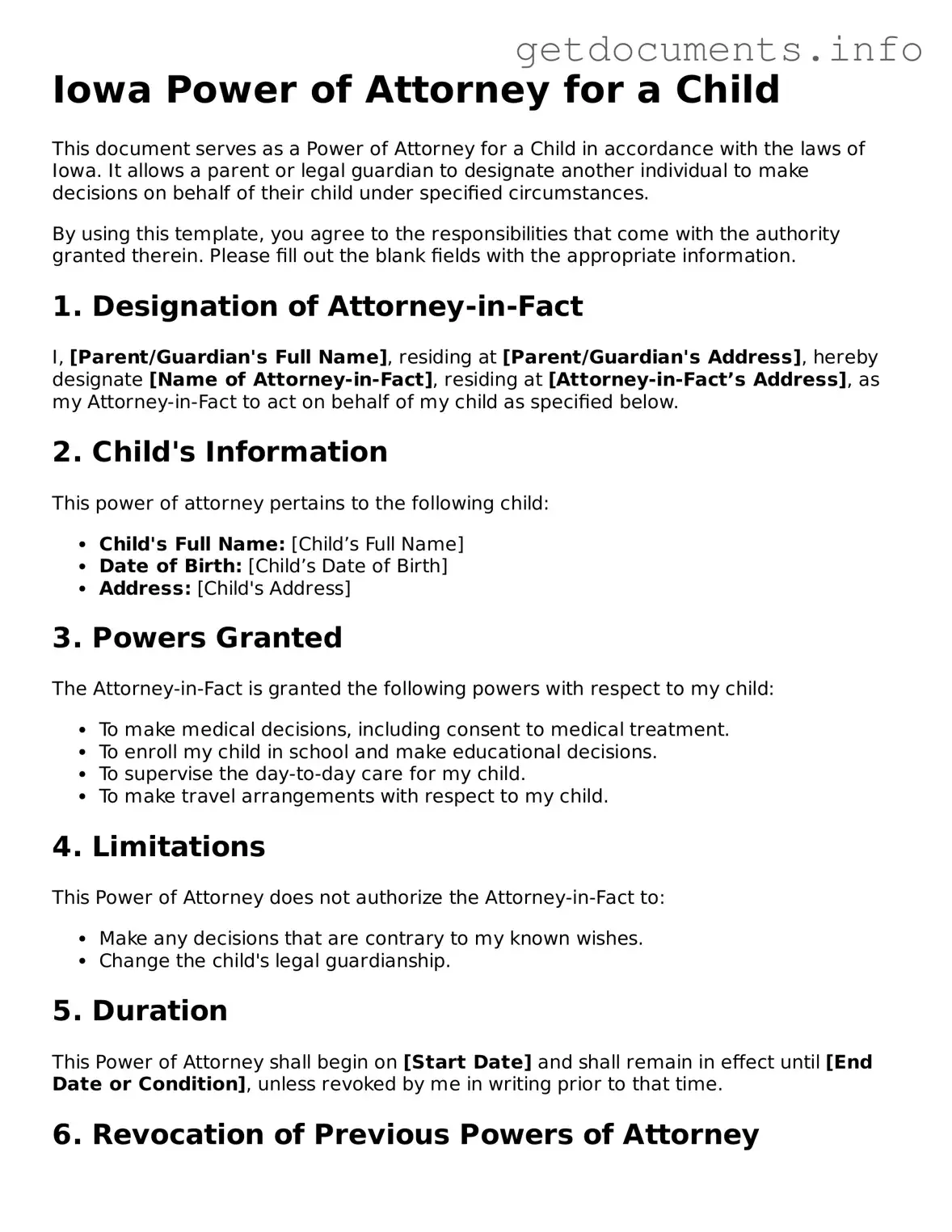Free Power of Attorney for a Child Template for Iowa
The Iowa Power of Attorney for a Child form allows a parent or legal guardian to designate another adult to make decisions on behalf of their child. This legal document is essential for ensuring that a trusted individual can act in the child's best interests in various situations. To get started with the form, click the button below.
Access Power of Attorney for a Child Editor

Free Power of Attorney for a Child Template for Iowa
Access Power of Attorney for a Child Editor
Got places to be? Complete the form fast
Fill out Power of Attorney for a Child online and avoid printing or scanning.
Access Power of Attorney for a Child Editor
or
⇩ PDF File
